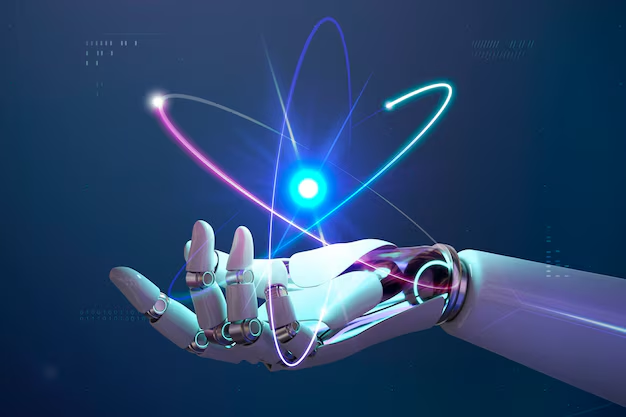“AI in Healthcare: How Artificial Intelligence is Changing Medicine” is a fascinating and rapidly evolving topic that highlights how AI technologies are revolutionizing the way healthcare is delivered, improving patient outcomes, and optimizing medical processes. From diagnostics to personalized treatment plans, AI is making significant strides in improving efficiency, accuracy, and accessibility in healthcare. Here are some key areas where AI is having a transformative impact on medicine:
1. AI in Diagnostics
- Medical Imaging and Analysis: AI-powered tools are helping doctors interpret medical images such as X-rays, CT scans, MRIs, and ultrasounds with higher precision and speed. Deep learning algorithms can detect subtle patterns in images that might be missed by the human eye, aiding in the early detection of conditions like cancer, fractures, and neurological disorders. For example, AI models like Google’s DeepMind have shown the ability to outperform radiologists in diagnosing certain conditions.
- Pathology and Histology: AI is being used to analyze tissue samples and biopsy slides to identify cancerous cells, infections, or other abnormalities. By automating these processes, AI helps pathologists make faster, more accurate diagnoses and frees them up to focus on complex cases.
2. Personalized Medicine
- Tailored Treatment Plans: AI is playing a pivotal role in creating personalized treatment plans based on a patient’s genetic makeup, medical history, and lifestyle. By analyzing vast amounts of data, AI can identify the most effective treatments and predict how patients will respond to specific therapies, minimizing trial and error.
- Genomic Medicine: AI algorithms are essential in interpreting genomic data, such as DNA sequencing. In oncology, for example, AI is helping researchers and doctors identify genetic mutations that contribute to cancer and design targeted therapies tailored to the individual’s genetic profile. This precision medicine approach aims to maximize the effectiveness of treatment while minimizing side effects.
3. Drug Discovery and Development
- Accelerating Drug Discovery: AI is helping streamline the drug discovery process by analyzing vast datasets of molecular structures and biological information. Algorithms can predict how different compounds will interact with specific diseases, enabling researchers to identify promising drug candidates more quickly and accurately. AI models have already been used to discover new drugs for diseases like COVID-19 and cancer.
- Predicting Drug Side Effects: AI can also analyze clinical data to predict potential side effects of drugs, reducing the likelihood of adverse reactions and ensuring that treatments are safer for patients. This predictive capability can significantly speed up the process of drug testing and approval.
4. Clinical Decision Support
- Enhanced Decision-Making: AI-powered clinical decision support systems (CDSS) are designed to assist healthcare professionals in making informed decisions about patient care. By analyzing patient data, medical histories, and research papers, AI tools can provide evidence-based recommendations and highlight potential risks or complications. This ensures that healthcare providers have the most relevant information to make timely and accurate decisions.
- Predictive Analytics: AI can analyze patient data to predict future health risks, such as the likelihood of developing chronic conditions like diabetes or heart disease. By identifying high-risk patients early, healthcare providers can implement preventative measures or treatment plans to improve long-term health outcomes.
5. Virtual Health Assistants and Chatbots
- 24/7 Patient Support: AI-driven virtual assistants and chatbots are improving patient engagement by providing on-demand medical advice, answering questions, and offering reminders for medications or appointments. These tools can guide patients through basic health concerns, help them manage chronic conditions, and direct them to appropriate healthcare services.
- Telemedicine and Remote Monitoring: AI is enhancing telemedicine by analyzing patient data from wearable devices, monitoring vital signs, and providing real-time insights to doctors during virtual consultations. This reduces the need for in-person visits and enables more frequent monitoring of chronic conditions such as hypertension or diabetes.
6. Robot-Assisted Surgery
- Precision and Minimally Invasive Surgery: Robotics powered by AI is revolutionizing surgery by enabling more precise, minimally invasive procedures. AI-assisted surgical robots can perform complex tasks with greater accuracy, reducing the risk of human error and improving patient recovery times. For example, the da Vinci surgical system uses AI to assist surgeons in performing delicate procedures, such as prostate surgery and heart valve repair, through smaller incisions.
- Surgical Planning and Simulation: AI is also being used to plan surgeries in advance by simulating different scenarios based on patient-specific data. These simulations allow surgeons to visualize the procedure in 3D, anticipate potential complications, and refine their approach before going into the operating room.
7. AI in Patient Monitoring and Care
- Wearable Devices: AI-enabled wearable devices like smartwatches, glucose monitors, and ECG monitors are constantly collecting data on a patient’s health. AI algorithms analyze this data in real-time, providing actionable insights that help doctors and patients manage chronic conditions and detect potential health issues before they become critical.
- Remote Patient Monitoring: For patients with chronic conditions or those recovering from surgery, AI-powered remote monitoring tools allow doctors to track vital signs and other indicators remotely. This technology improves patient outcomes by ensuring continuous care without the need for frequent in-person visits.
8. AI in Public Health and Epidemiology
- Disease Outbreak Prediction: AI is playing a critical role in tracking and predicting disease outbreaks. By analyzing vast amounts of data from various sources, such as news reports, social media posts, and healthcare records, AI models can identify patterns and predict potential health crises, enabling governments and health organizations to respond proactively.
- Improving Healthcare Access: AI tools are being used to improve healthcare accessibility, especially in underserved or remote regions. For example, AI-powered diagnostics can be deployed in rural areas to assist healthcare workers in diagnosing conditions with limited access to specialists. This helps bridge the gap between urban and rural healthcare services.
9. AI in Healthcare Administration
- Optimizing Operations: AI is streamlining administrative tasks in healthcare settings, such as scheduling appointments, managing medical records, and processing insurance claims. By automating these processes, healthcare organizations can reduce costs, improve efficiency, and allow staff to focus more on patient care.
- Predicting Hospital Admissions: AI can analyze patient data to predict hospital admissions and emergency room visits, helping healthcare providers optimize staffing and resource allocation. This can reduce wait times, prevent overcrowding, and ensure that patients receive timely care.
10. Challenges and Ethical Considerations
- Data Privacy and Security: The use of AI in healthcare involves the collection and analysis of large amounts of sensitive patient data. Ensuring the security and privacy of this data is paramount, as breaches or misuse could compromise patient trust and confidentiality.
- Bias in AI Models: AI algorithms can sometimes reflect biases present in the data they are trained on, leading to unfair outcomes or disparities in healthcare delivery. It is important to ensure that AI systems are developed with diverse and representative datasets to minimize these biases.
- Human Oversight: While AI is a powerful tool, it is important that healthcare professionals remain involved in the decision-making process. AI should be seen as a complement to, rather than a replacement for, human expertise. Ensuring proper oversight and accountability is crucial as AI continues to play a larger role in healthcare.
Conclusion
AI is undeniably transforming healthcare, offering new ways to improve patient outcomes, increase efficiency, and make healthcare more accessible. From diagnostics and personalized medicine to robotic surgery and virtual assistants, the potential benefits of AI are vast. However, as with any technological advancement, there are challenges to address, including data security, bias, and the need for human oversight. The future of AI in healthcare is incredibly promising, but it requires careful and ethical implementation to ensure that it benefits all patients and healthcare providers.

